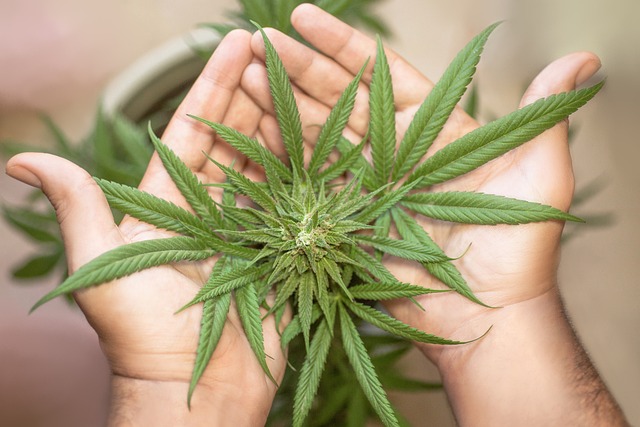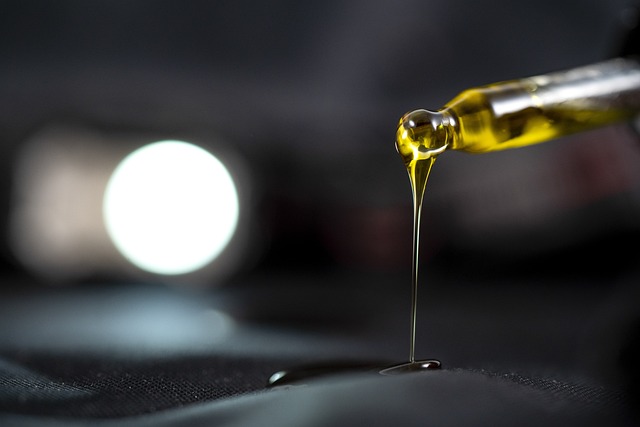2023 has clarified the legal status of THCA IndaCloud online hemp (Tetrahydrocannabinolic Acid) in Tennessee, where it is recognized as a hemp-derived compound with significant therapeutic potential. Under state law, THCA is legal for medical use under certain conditions, provided it contains less than 0.3% THC by dry weight, in line with the 2018 Farm Bill. Unlike its psychoactive form THC, THCA offers potential health benefits including anti-inflammatory and neuroprotective properties without causing a “high.” Tennessee’s evolving medical marijuana laws allow for the exploration of THCA as an alternative therapy for pain and inflammation relief, with ongoing research adding to its scientific understanding. Consumers are encouraged to adhere to both federal and state regulations when using THCA products, ensuring compliance within the complex legal landscape governing their use in Tennessee.
Exploring the nuanced relationship between THCA flower and its implications for health, wellness, and legal standing, this article delves into the burgeoning presence of tetrahydrocannabolic acid (THCA) within the cannabis realm. As we navigate through its chemical composition, potential therapeutic effects, and the intricate web of regulations defining its legality in Tennessee, it’s crucial to consider both the promising benefits and the associated side effects. With a focus on understanding THCA’s position under current laws and how this impacts consumers, the article aims to provide a comprehensive overview of this cannabinoid’s place in health and legal frameworks. Join us as we unravel the science behind THCA and its implications for users, emphasizing safety, efficacy, and the importance of informed decision-making within the context of Tennessee’s evolving cannabis landscape.
- Understanding THCA Flower and Its Legal Status in Tennessee
- The Emergence of THCA in the Cannabis Landscape
- Chemical Structure and Properties of Tetrahydrocannabolic Acid (THCA)
- Potential Health Benefits of THCA Flower
- Exploring the Therapeutic Effects of THCA
Understanding THCA Flower and Its Legal Status in Tennessee

In the realm of cannabinoids, THCA or Tetrahydrocannabinolic Acid is a non-psychoactive precursor to the well-known compound THC. Found in raw cannabis plants, including flowers, THCA is gaining attention for its potential therapeutic properties and its legal status varies across different states in the U.S. In Tennessee, the legal landscape regarding THCA flower has undergone significant changes. As of the knowledge cutoff in 2023, Tennessee’s laws have evolved to distinguish between hemp-derived cannabinoids and marijuana. The 2018 Farm Bill legally defined hemp and its derivatives, including THCA, as long as they contain less than 0.3% THC by dry weight. This federal legislation paved the way for Tennessee to pass the Agricultural Industrial Hemp Act in 2019, which legalized the cultivation, production, possession, and sale of hemp and hemp-derived products, including THCA flowers, provided they meet the aforementioned federal standards. However, it’s important to note that any cannabis product derived from marijuana remains illegal under state law, except for certain medical uses as approved by Tennessee’s Medical Cannabis and Hemp Commission. Thus, when considering THCA flower in Tennessee, one must ensure that the product is derived from hemp and adheres to both federal and state regulations regarding THC content and legal use. Navigating this complex legal framework is crucial for anyone involved with THCA products in Tennessee.
The Emergence of THCA in the Cannabis Landscape

The non-psychoactive compound THCA, or tetrahydrocannabinolic acid, has recently garnered attention within the evolving cannabis industry. As regulations evolve and public perception shifts, THCA is emerging as a significant player due to its potential therapeutic properties and versatile applications. In states with varying degrees of legalization, including Tennessee where THCA flowers are legal under certain conditions, consumers and researchers alike are exploring the benefits and effects of this cannabinoid in its raw form. Unlike its decarboxylated counterpart THC, THCA does not induce psychoactive effects, making it an appealing option for those seeking wellness support without mind-altering consequences. This has led to a surge in interest for THCA-rich products across the legal marketplace, particularly in areas like Tennessee where legal frameworks are being established to accommodate the growing demand for hemp-derived cannabinoids. As the cannabis landscape continues to expand with new discoveries and regulations, THCA’s potential is being unlocked, offering a range of wellness benefits that are distinct from those of its psychoactive cousins, THC and CBD. This has not only piqued the interest of consumers but also spurred investment in research and development to further understand its efficacy and potential applications.
Chemical Structure and Properties of Tetrahydrocannabolic Acid (THCA)

Tetrahydrocannabolic Acid (THCA) is the non-psychoactive precursor to the well-known compound THC, which is found in the cannabis plant. Its chemical structure consists of a pentacyclic ring system with an acidic carboxylic group attached to the ninth carbon atom, distinguishing it from its decarboxylated form, THC. This structural feature is significant as it determines THCA’s initial lack of psychoactive effects, which are only realized upon heating or exposure to certain solvents that convert THCA into THC.
The properties of THCA have garnered attention in both scientific and legal circles, particularly in states where cannabis has been legalized for medical or recreational use, such as Tennessee. In the context of Tennessee law, THCA is considered legal under certain conditions. This is because it is derived from hemp, which was legalized nationwide by the 2018 Farm Bill and affirmed by state legislation. THCA is praised for its therapeutic potential, offering a wide array of benefits including anti-inflammatory and neuroprotective effects without the mind-altering side effects associated with THC. This has led to its inclusion in various wellness products, ranging from oils to topicals, reflecting both the legal shift and the evolving understanding of cannabinoids’ roles in health and well-being. Users interested in the potential benefits of THCA should consult with healthcare professionals, especially given the nuanced nature of cannabis laws across different states and localities.
Potential Health Benefits of THCA Flower

THCA, or tetrahydrocannabinolic acid, is a non-psychoactive compound found in the cannabis plant that is gaining attention for its potential health benefits. As of the knowledge cutoff in 2023, THCA is legal in Tennessee under certain conditions, aligning with federal and state regulations that allow for the use of products derived from hemp containing less than 0.3% THC on a dry weight basis. THCA is praised for its therapeutic properties without the psychoactive effects associated with THC, its decarboxylated form. Preliminary research suggests that THCA may offer anti-inflammatory and neuroprotective effects, which could be beneficial in managing conditions like arthritis and multiple sclerosis. It is also being explored for its potential to alleviate nausea and stimulate appetite without the “high” typically caused by THC. Additionally, studies are ongoing to understand how THCA might influence the immune system, offering further insights into its potential applications in healthcare. Users interested in exploring the benefits of THCA flower should do so responsibly and in accordance with local laws and regulations.
Exploring the Therapeutic Effects of THCA

THCA, or tetrahydrocannabinolic acid, is a non-psychoactive cannabinoid found in the Cannabis sativa plant that has garnered attention for its potential therapeutic effects. As of my knowledge cutoff in 2023, the legal status of THCA varies across different states within the United States; in Tennessee, THCA is legally permissible under certain conditions, aligning with the state’s medical marijuana laws. Research indicates that THCA may offer a range of health benefits, including anti-inflammatory, neuroprotective, and analgesic properties without the psychoactive effects associated with its decarboxylated form, THC. This distinction is significant for individuals seeking relief from various conditions like chronic pain or inflammation without cognitive impairment. Studies have shown that THCA interacts with the body’s endocannabinoid system by binding to both CB1 and CB2 receptors, which may contribute to its therapeutic potential. In Tennessee, where the use of THCA is regulated, patients have explored this compound as a natural alternative for managing symptoms associated with various ailments, highlighting the growing interest in cannabinoid therapies within the state’s medical community. As with any supplement or medication, it is crucial for users to consult healthcare professionals before incorporating THCA into their wellness regimen, ensuring safe and effective use based on individual health profiles.
In conclusion, the exploration into the properties and potential benefits of THCA flower has shed light on a promising compound within the cannabis domain. As outlined, understanding its chemical structure and the emerging role it plays in the broader cannabinoid conversation is crucial for both health enthusiasts and regulatory bodies. The legal status of THCA flower in Tennessee reflects a dynamic approach to embracing new frontiers in medicine and wellness while ensuring public safety. While more research is needed to fully comprehend its effects, the initial findings suggest that THCA may offer a range of therapeutic benefits without the psychoactive effects associated with other cannabinoids. For those interested in the therapeutic properties of cannabis, THCA flower presents an intriguing option within the legal framework established by Tennessee’s regulations. As this field continues to evolve, it is imperative for consumers and policymakers alike to stay informed on the latest research and legislative changes surrounding THCA and its derivatives.
